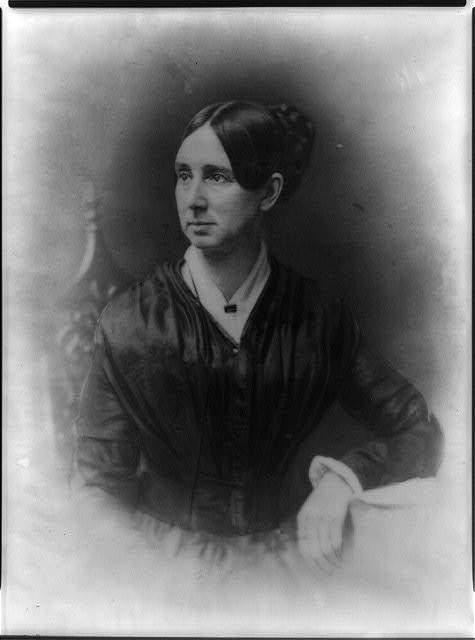She Dedicated Her Life To Those Who Did Not Have A Voice, And If You’re Passionate About Making The World A Better Place, You Might Find Her Story Inspirational

Have you ever heard of Dorothea Dix? If you’re passionate about social reform and striving to make the world a better place, you might find her story inspirational.
Dorothea was born in Hampden, Maine, in 1802. At the age of 12, she and her brother were sent to live with their grandmother in Boston, Massachusetts. During her teenage years, she taught at a school for young girls and developed her own curriculum.
Although she had a passion for teaching, she had intense periods of illness and depression that eventually caused her to leave her teaching job in Boston. However, in 1841, a brand new opportunity presented itself, one that would kick-start her career as a social reformer.
Dorothea was asked to become a Sunday school teacher in the East Cambridge House of Correction in Massachusetts.
During her time in the prison, she noticed that there were a lot of mentally ill people that were being treated inhumanely, mixed in with other dangerous inmates, and not receiving the kind of care they needed to get better.
Horrified by this discovery, Dorothea continued to travel around Massachusetts for two years, touring other facilities and finding that they were all running under the same awful conditions. In 1843, she reported her discoveries to the state legislature.
She was incredibly persuasive in pushing that something needed to be done for these people quickly, and eventually, a bill was passed to expand the Worcester Insane Asylum.
Over the next 40 years of her life, Dorothea did this kind of work all across the United States and made significant progress.
She inspired legislation in 15 states that would build state hospitals for the mentally ill and overall helped build 32 institutions. In the 1850s, she did some of this work in Europe and even spoke to Pope Pius IX about the terrible conditions in asylums in Rome.

Library of Congress – pictured above is Dorothea
Furthermore, if a hospital or asylum for the mentally ill already existed in an area, she would still strive to fix it or fine-tune it. She would reorganize, expand, and fill the spaces with better staff.
In 1845, she published her book, Remarks on Prisons and Prison Discipline in the United States, which called for better treatment of prisoners in the United States, and educated people on what was really going on in these institutions.
During the Civil War, in 18161, Dorothea was named the Superintendent of Army Nurses by the Union Army. Although she sometimes wasn’t the best administrator, her work during the war was highly respected. Once it was over, she continued her advocacy work for institutions.
When she got older, she moved into one of the hospitals she helped build in Trenton, New Jersey. She worked and wrote correspondence until she passed away on July 17th, 1887, at the age of 85.
What an amazing life dedicated to people who didn’t have a voice!
If true crime defines your free time, this is for you: join Chip Chick’s True Crime Tribe
Why Do People Fall Out Of Love, And Is There Anything You Can Do To Prevent This?
Sign up for Chip Chick’s newsletter and get stories like this delivered to your inbox.
More About:Chicks We Love